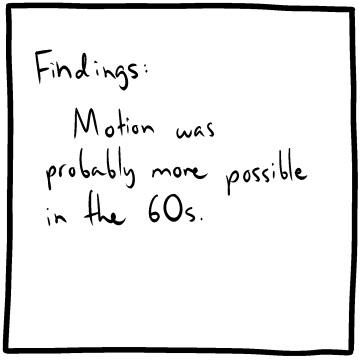Book Review Tuesday!
Below are some recent book reviews for books I've read. If you want more, visit TheWeinerworks.
Wow. What an incredible poem and story. I wasn’t able to put it down after I read the first stanza.
This book was written in the 1920s, but didn’t get much of a print run, mostly due to the sex and murder, one suspects. Anyway, it is a great story told with incredible melody. Here’s a stanza, selected more or less at random:
The candles flared: their flames sprang high:
The shadows leaned dishevelled, awry;
And the party began to reek of sex.
White arms encircled swollen necks:
Blurred faces swam together: locked
Red hungry lips: Closed eyes: Rocked.
White shoulders burst their ribbon bands;
Rose bare to passionate, fumbling hands:
White slender throats curved back beneath
Attacking mouths that choked their breath.
In short: DANG. Wow, what a book. The version I got was a re-issue with very pretty artwork by Art Spiegelman, author of Maus. He apparently happened on the book by accident, due to finding it in a used book store, having a beautiful cover. The illustrations are an excellent reason to re-issue the book, but the star here is really the words. I won’t go so far as to the pictures take away from the poem - they, in fact, have this wonderful Art Deco gruesomeness that I assume was in part inspired by Ward’s book “Gods’ Man” - but part of me regrets having not read it first without pictures.
I really enjoyed this book, which is a sort of braiding of three plotlines, one a fable, one a farce, one a diary, all of them on the topic of finding one’s identity as an Asian person in a predominantly white society. The only thing I will say by way of critique (and maybe this is sort of like someone at a restaurant critiquing small portions rather than quality, BUT...) is that the diary portions were so clever and subtle that I found myself rushing through the other segments. The other parts were there for a reason, and certainly were important to the building of the story and the ultimate coalescing of the different narrative melodies, but… I feel like I could have easily enjoyed three or four hundred pages of the more realistic portion of the tale.
So first, the good: this is a beautiful book, and Mishra has a wonderful command of literature, especially revolutionary literature of the 18th and 19th century. In this book he describes how the present “age of anger” can be understood in terms of those centuries - how the death of old institutions (e.g. religion, tribe) in favor of a commercial world that most people will fail in, results in a deep state of nihilism and longing, which can manifest in anarchy, fascism, and violence.
Literary snobbish types (such as myself) tend to enjoy this sort of thing. I mean, he’s explaining Trump in terms of Nietzsche! And he does it with the flair and verve of Lenin. He has that old style of writing, recently revived, in which all of society and history can be explained if you just grok a few basic ideas about history and human nature.
The problem is I’m not sure it’s true. Partially, I’m a bit biased against this book, having recently read Graeme Wood’s delightful “The Way of Strangers” about understanding ISIS. This is relevant because Mishra frequently cites ISIS as a manifestation of the product of human dislocation in the modern world.
In a way, Wood’s theory can be brought along with Mishra’s - both note that ISIS fighters are frequently young people, often criminals, who know nothing about Islam. In fact, both Mishra and Wood point out the stories of ISIS fighters reading “Islam for Dummies.” But, Wood makes a point that is very contra to Mishra - that we make a mistake if we try to center all this around Europe and the rise of commerce, to the extent that we neglect the fact that Salafis really actually believe their religion.
More importantly to the dorky part of my brain, I have trouble with Mishra’s ideas when I look around the world. Are things bad? In many ways, yes. Trump freaks me out. It may be the case that racists and race separatists are more open with their views.
On the other hand, if Mishra is right and we live in an especially nihilistic world, where old institutions are all collapsing as we spend all our time on social media coveting each others’ lives… why isn’t the modern world more violent than the past? It’s not as if you find a world of peace in those past ages where religion and tribal allegiance reigned. Maybe Voltaire was kind of a prick, and maybe the Enlightenment wasn’t on behalf of the common man, but were the crusades or the Inquisition these things either?
For a book so well-versed in the past, it seems to paint the present as overly important. For example, toward the end of the book, Mishra talks about McVeigh’s experience of the death of the American dream during the economic crises starting around 1970. Sounds interesting, sounds plausible. Except, well, consider any other 40 or so year period. Do you find it devoid of conflict and economic desolations? 1930-1970? 1890-1930? 1850-1890? Of course not.
Capping things off, Mishra makes what I am starting to call the Argumentum ex Trumpum fallacy. To wit - that anything can be gleaned about society from the bare fact that Trump won. Is American society descending into chaos and dislocation? Into race hatred and cataclysm? I mean, maybe, but how does Trump prove it? But for a few coincidences in one or two states, he lost. I’m not saying he won unfairly - I’m saying that, so to speak, there are (let’s say) 40 in 100 universes where he lost.
In those universes, one assumes, the Mishras of the world don’t say “actually, I was wrong about society, and the election of this moderate Democrat proves it.” His Argumentum ex Brexitum falls similarly discordant on my ears. Brexit barely won, and most of its supporters were older Brits, not young angry radicals. How in the world does Brexit show a world withdrawing into itself?
Again, it was tight enough that the outcome could well have been decided by a couple of days of bad weather during the voting period. Without Brexit, does the argument change? Mishra also puts forth the idea that global anomie stems from a sort of halt to the promised progress of humanity that begin with the Enlightenment. Is this true? Not really. It may well be true for the Western middle class (writ large) who’ve generally suffered due to globalization? But, worldwide, the average worker is better off than ever. Poverty and hunger are falling. Malaria is being defeated. Snapchat has nifty Internet-glasses. Where is the purported halt to human progress?
In short, I wanted to see some stronger stats (or maybe some stats at all). Nothing major. Just, maybe a rule that every time you say ressentiment or amour propre in reference to the feelings of an entire people, you oughta make a nice graph or something. All that said, I did enjoy this book. I'm simply not convinced. Or, at least, if you want to explain ISIS, I think "Sometimes people are total fuckers, and other fuckers are attracted to their fuckery" is at least as plausible as some sort sudden Western malaise.




.png)














